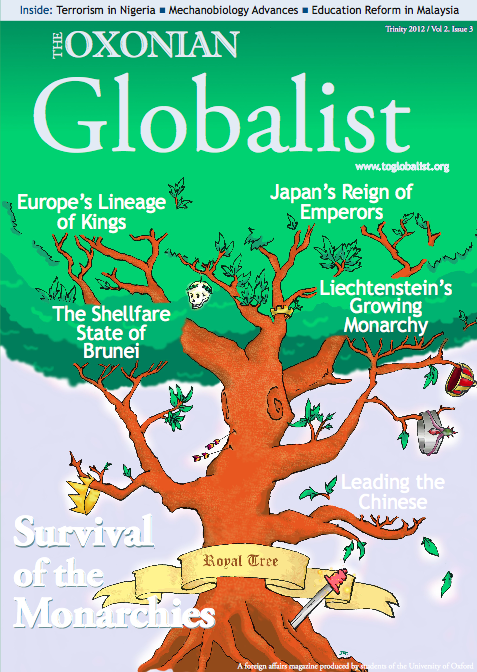A history of power
Historically, Egypt has been the Arab world’s power broker. However, its dominion ended with the death of Gammal Abdul Nasser and his Pan-Arabism agenda and Anwar Sadat’s peace treaty with Israel that saw Egypt’s membership to the Arab league suspended.
The vacuum that Egypt left behind was quickly filled by Saudi Arabia, aided by the rise in oil prices synonymous with the 1970s. Saudi Arabia was flush with cash and eager to exert its influence, brokering its new position in the hierarchy of power in the Middle East. The United Arab Emirates came into the game a little later. While the UAE was also flush with oil money at the time, it didn’t make its début on the world stage until the rise of Dubai as a regional economic hub. Qatar’s rise in the ranks is even more recent and was fuelled by the discovery of massive reserves of natural gas.
Mirror images
The fall of the Mubarak regime in February 2011 left Egypt’s domestic affairs in chaos. However, the greater freedom that followed Mubarak’s ouster lead to the rise of many new political parties vying for power in the new Egypt There are now four main players on the scene. At the right most end of the spectrum are the Salafis represented by Gama’a Islameya and the Al Nour party. Following closely are the Muslim Brotherhood represented by the Freedom and Justice party. To the left of the Muslim Brotherhood are the remnants of the old regime represented by former prime minister and presidential candidate Ahmed Shafik. Finally, at the left most end of the spectrum are the fragmented liberal democrats represented by a number of parties, most prominent of which is the Al Dostour party lead by former head of the International Atomic Energy Agency, Mohamed El Baradei.
For years Saudi Arabia has been exporting its Wahabi religious ideology outside its borders. This has served well as a tool for increasing its influence across the Muslim world. Free and fair elections in Egypt gave Saudi Arabia a rare opportunity to aid some of its strongest supporters in their bid to lead the Middle East’s largest nation. In supporting Egypt’s Salafis, Saudi Arabia sought to bring Egypt’s domestic and foreign policies in line with its own. Political reorganisation also offered an opportunity to support the creation of another Sunni Islamist-led nation much like itself. A Sunni Islamist-led Egypt would decisively tip the balance of power in the Middle East towards Saudi Arabia and away from Iran.
The last decade has seen Qatar slowly carving a new role for itself as a regional power. The prolific Al Jazeera, hosting the Football World Cup and garnering the necessary support for military intervention in Libya are all clear signs of Qatar’s increasing influence in the region and around the world. In pursuit of its goal to become a regional power broker and major player on the international scene, Qatar has supported the rise of Egypt’s Muslim Brotherhood and its Freedom and Justice party.
The UAE is eager to protect the relatively liberal niche it has carved for itself and is fearful of the rise of extremism, particularly the rise of Egypt’s Muslim brotherhood. While by the standards of the western world the UAE would not be considered as such, in the Middle East it is viewed as one of the more liberal destinations. The UAE was a supporter of the Mubarak regime and would prefer to see secular liberals in power in Egypt. While the UAE’s support for the liberals has been less obvious than the support of Saudi Arabia and Qatar to the Islamists. It is worth noting that Dubai is now home to Ahmed Shafik, the former presidential candidate and the last prime minister under Hosni Mubarak, despite the fact that he is currently wanted in Egypt and is accused of abuses of power and illicit gains
The power play
Qatar has supported the winner in the race for power in Egypt. The new Egyptian president and the majority of the now dissolved parliament are members of the Muslim Brotherhood. Saudi Arabia has also done well with the surprising rise of Egypt’s Salafis and their success in winning 25% of the seats of Egypt’s lower house. The UAE has yet to make any noticeable gestures of support to the liberals aside from offering sanctuary to remnants of the old regime. So while Saudi Arabia, Qatar and the UAE are acting in their best interest, who is acting in the best interest of Egyptians and for peace and stability in the region? Not to mention the international community at large.
Saudi Arabia and Qatar have not come under any international pressure to cease and desist and the UAE, the only player trying to counter their influence, has not done much. Western democracies have made abstract promises and have not taken any action or shown any resolve to countering the influence of Saudi Arabia and Qatar. Losing Egypt to Islamic fundamentalism would be a grave mistake. Egypt’s influence in the region continues to be strong and an Islamist Egypt that supports and harbours Islamist extremists will bring a great deal of instability to the already volatile region. The west lost Egypt once before; when the World Bank refused to fund construction of the Aswan dam, the former Soviet Union came to Egypt’s aid. As a result, Egypt remained an ally of the Soviets during the Cold War. It wasn’t until Sadat’s policy shift towards the west, after the death of Nasser and a great period of instability in the region as Israel and Egypt warred, that Egypt began rebuilding its relationship with the west. Let us heed the lessons of history. Let us not lose Egypt to the rising Islamist current.
Recent Oxonian Globalist articles on Middle Eastern Politics:
When Arabs Spring, Israel Gets Nervous
The British Response To The Arab Spring










